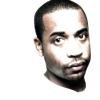Search the Community
Showing results for tags 'emotions'.
Found 5 results
-

Emotions in Health Preservation and Internal Training
senseless virtue posted a topic in Daoist Discussion
Discussion about the meaning and importance of emotional regulation in preserving good health and being a competent internal training practitioner. There are a few ways to formulate the seven emotions in terms of Classical Chinese Medicine so here are two good sources giving slightly different points of view. Please note that this is an issue of translation and interpretation: the basic theory connecting to the five element transformations and the respective organ systems is not changed. What Are The Seven Emotions? Suwen (The Book of Plain Questions) says "The five yin-organs of the human body produce five kinds of essential qi, which bring forth joy, anger, grief, worry, and fear." TCM also believes that certain organs are related to emotional activities, i.e. the heart is related to joy, the liver to anger, the spleen to pensiveness, the lungs to anxiety and the kidneys to fear. The emotions are considered the major internal causes of disease in TCM. Emotional activity is seen as a normal, internal, physiological response to stimuli from the external environment. Within normal limits, emotions cause no disease or weakness in the body. However, when emotions become so powerful that they become uncontrollable and overwhelm or possess a person, then they can cause serious injury to the internal organs and open the door to disease. It is not the intensity as much as the prolonged duration or an extreme emotion, which causes damage. While Western physicians tend to stress the psychological aspects of psychosomatic ailments, the pathological damage to the internal organs is very real indeed and is of primary concern of the TCM practitioner. Excess emotional activity causes severe yin-yang energy imbalances, wild aberrations in the flow of blood, qi (vital energy) blockages in the meridians and impairment of vital organ functions. Once physical damage has begun, it is insufficient to eliminate the offending emotion to affect a cure; the prolonged emotional stress will require physical action as well. The emotions represent different human reactions to certain stimuli and do not cause disease under normal conditions. 喜 Joy "When one is excessively joyful, the spirit scatters and can no longer be stored," states the Lingshu (The Vital Axis). However, in TCM, joy refers to a states of agitation or overexcitement, rather than the more passive notion of deep contentment. The organ most affected is the heart. Over-stimulation can lead to problems of heart fire connected with such symptoms as feelings of agitation, insomnia and palpitations. 怒 Anger Anger, as described by TCM, covers the full range of associated emotions including resentment, irritability, and frustration. An excess of rich blood makes one prone to anger. Anger will thus affect the liver, resulting in stagnation of liver qi (vital energy). This can lead to liver energy rising to the head, resulting in headaches, dizziness, and other symptoms. In the long run it can result in high blood pressure and can cause problems with the stomach and the spleen. It is commonly observed that ruddy, "full-blooded" people with flushed faces are more prone than others to sudden fits of rage at the slightest provocation. 憂 Anxiety "When one feels anxiety, the qi (vital energy) is blocked and does not move." Anxiety injures the lungs, which control qi (vital energy) through breathing. Common symptoms of extreme anxiety are retention of breath, shallow, and irregular breathing. The shortage of breath experienced during periods of anxiety is common to everyone. Anxiety also injures the lungs' coupled organ, the large intestine. For example, over-anxious people are prone to ulcerative colitis. 思 Pensiveness In TCM, pensiveness or concentration is considered to be the result of thinking too much or excessive mental and intellectual stimulation. Any activity that involves a lot of mental effort will run the risk of causing disharmony. The organ most directly at risk is the spleen. This can lead to a deficiency of spleen qi (vital energy), in turn causing worry and resulting in fatigue, lethargy, and inability to concentrate. 悲 Grief The lungs are more directly involved with this emotion. A normal and healthy expression of grief can be expressed as sobbing that originates in the depths of the lungs - deep breathes and the expulsion of air with the sob. However, grief that remains unresolved and becomes chronic can create disharmony in the lungs, weakening the lung qi (vital energy). This in turn can interfere with the lung's function of circulating qi (vital energy) around the body. 恐 Fear Fear is a normal and adaptive human emotion. But when it becomes chronic and when the perceived cause of the fear cannot be directly addressed, then this is likely to lead to disharmony. The organs most at risk are the kidneys. In cases of extreme fright, the kidney's ability to hold qi (vital energy) may be impaired leading to involuntary urination. This can be a particular problem with children. 驚 Fright Fright is another emotion not specifically related to only one organ. It is distinguished from fear by its sudden, unexpected nature. Fright primarily affects the heart, especially in the initial stages, but if it persists for some time, it becomes conscious fear and moves to the kidneys. Adapted and slightly edited from: http://www.shen-nong.com/eng/principles/sevenemotions.html The Seven Emotions and Qigong The seven human emotions, i.e. joy, anger, worry, anxiety, sorrow, fear, and terror are normal phenomena of life activities which do not induce diseases under normal circumstances. However, abnormal fluctuations in the “seven emotions” may directly affect he functions of the viscera, disturb the circulation of blood and Qi, and thus cause diseases. Being affected by these emotions, the exerciser of Health Qigong will not be able to enter a peaceful and calm state free of distracting thoughts. And the results of the exercise will be naturally affected. It is believed in theories of the traditional Chinese medicine that: “Anger impairs the liver, joy impairs the heart, worry impairs the spleen, sorrow impairs the lungs, and terror impairs the kidneys.” Yellow Emperor’s Classic of Internal Medicine: Su Wen: Ju Tong Lun says: “Rage drives Qi upward, overjoy slackens Qi, excessive sorrow consumes Qi, terror collapses Qi, …… and anxiety causes Qi stagnation”. All of these have indicated that the excessive and over-excited “seven emotions” will impair the mental and physical health of man to certain extents. Joy is an embodiment of the happy and delighted mind. Yellow Emperor’s Classic of Internal Medicine: Su Wen: Ju Tong Lun says: “Joy will harmonize Qi and facilitate both nutrient and defensive Qi.” But over-joy will impair the cardiac Qi, just as Yellow Emperor’s Classic of Internal Medicine: Ling Shu: Ben Shen says: “The spirit should be hidden and kept from being lost during joy”, indicating that excessive joy will impair the mind. The heart is the core, commander, and grand master of all the five Zang viscera. It is the key to the health of the body. By practicing Health Qigong, we can regulate the blood-pumping function of the heart and enrich cardiac Qi. Anger is an embodiment of agitated emotion of man. People get angry and furious when they are discontent and unsatisfied. Generally speaking, proper expression of emotions is important for maintaining the physiological equilibrium of the human body. But persistent rage, fury, and gloominess will cause negative effects on the organism. Gloominess impairs the liver and upheaves liver Qi. Blood will ascend with the upward invasion of liver Qi, congesting the brain and causing discomfort of the body. This will lead to headaches, cerebral distension, hypochondriac pains, chest distress, dry eye syndrome, and even critical symptoms such as faint, hematemesis, and shock. Yellow Emperor’s Classic of Internal Medicine: Su Wen: Ju Tong Lun says: “All diseases originate from Qi…… Anger will cause adverse rising of Qi and even hematemesis or diarrhea”. Yellow Emperor’s Classic of Internal Medicine: Su Wen: Sheng Qi Tong Tian Lun says: “Excessive anger leads to segregation of QI from the configuration; and blood stagnating in the upper part of the body will cause raged syncope.” The liver controls dispersion and blood storage. It facilitates the functional activities of Qi throughout the body, keeps unobstructed circulation of Qi in the channels of all viscera, stores blood, transports blood, and regulates and controls the blood supply for various parts of the body. Worry means something or someone that causes anxiety. Excessive worries will have negative effects on the organism, impede the movements of Qi, and cause Qi stagnation. It is believed in traditional Chinese medicine that: “anxiety causes Qi stagnation”. It was said in ancient times that: “When the shape is not straight, Qi will not move smoothly. When Qi does not move smoothly, the mind will not be at ease. When the mind is not at ease, spirit will be scattered”, indicating that obstructed circulation of Qi has a direct influence on the spirit of man. Excessive worries will lead to obscure complexion in the spleen and stomach, dyspepsia, insomnia and dreaminess, dizziness, and many other symptoms. Sorrow (depression) is the embodiment of sadness and depression. Excessive sorrow will impair the pulmonary Qi and cause short breath, just as Yellow Emperor’s Classic of Internal Medicine: Ling Shu: Ben Shen says: “sorrow will block Qi and hamper its circulation” and “deficient pulmonary Qi will cause nasal obstruction and asthenia Qi”. Fear (terror) is the embodiment of apprehensive and fright. Excessive terror will impair the kidneys and cause chaotic Qi in the viscera. Yellow Emperor’s Classic of Internal Medicine: Su Wen: Ju Tong Lun says: “Terror collapses Qi……Terror disorders Qi”. To sum up, all “seven emotions” have important connections with the internal organs of the human body. The “seven emotions” are normal emotional signs of man and do not induce diseases under normal circumstances. And they actually play an important role in maintaining the normal physiological functions of the human body. But over-excitation which exceeds the normal range of regulation of the human body will result in diseases. Exercises of Health Qigong are mainly featured by: Body regulation, breath regulation, and mind regulation. Body regulation is the basis for breath regulation and mind regulation, while mind regulation is the core of the “Three Regulations”. It provides good regulating effects on all the viscera. Therefore the “Three Regulations” have very good influencing, regulating, and controlling effects on the mental state and temperament of man. And the emotional changes of the “seven emotions” will in turn influence the results of Health Qigong exercise. Therefore it is of great importance and value to learn the “seven emotions” and maintain a normal state of the “seven emotions” during the practice of Health Qigong. By doing so we can gradually replenish the “three treasures” of body (essence, Qi, and spirit) to achieve sufficient essence, abundant Qi, and complete spirit and thus truly understand the essentials of health preservation, disease prevention, and body-building. Adapted from here (original source isn't available anymore): https://neigong.net/2011/09/26/the-seven-emotions-and-qigong/ -
Hello my friends, The crucial question of how to deal with destructive emotions that keep us from acting with wisdom, compassion and loving kindness has been raised in another thread. I take the liberty to quote some of the posts that particularly inspired me to start the current topic, including my own replies to them, as this may serve to highlight some of the complexities that are inevitably involved. Let me start by presenting a simple method from Tibetan Buddhism that I like very much and that I often practise myself. But most of all, I chose this particular method because, in its simplicity and beauty, it is something anybody can use anytime, whether they consider themselves Buddhists or not. And talking about that, by no means do we need to limit this discussion to Buddhist methods. Actually, I would love to hear also from people outside those traditions about what they are doing to deal with negativity they find in themselves and in others. That's why I chose to post this topic in General Discussion rather than in the Buddhist section. That said, I do hope specifically for my new Buddhist friends to chime in. Anyway, may I present now the so-called Tonglen cleansing method. This can be used whenever you encounter a negative emotion either in your environment or in yourself and you feel the urge to do something about it. Once this has been established, you turn your attention to all the other people in the world that are feeling that same emotion. Then you inhale slowly, and while doing so, you take all that negativity into your heart centre, carefully maintaining awareness. There in your heart centre, you visualise some kind of black hole absorbing that dark cloud of negativity (or whatever form you are giving it) completely. Hold your breath for a few seconds. Allow all negativity to be transformed in your heart centre! Now as you exhale, visualise and feel all this cleansed energy emanating from a star-like spot in your heart centre, right where the black hole used to be previously. Allow yourself to bathe in this energy and send it out to your environment and all those people that may benefit from it. If you try this simple exercise, I would love to hear back from you about your experiences. Armando
- 12 replies
-
- 3
-

-
- emotions
- heart centre
- (and 6 more)
-
Introduction to feeding your demons: https://www.lionsroar.com/how-to-practice-feeding-your-demons/
-
Had a guy create this video and post to my channel saying that I needed to watch it. All the stirring up his emotions & growling made me feel uneasy-- not going to say that his energy was giving something off-- I'll just say I felt uncomfortable. My bestie told me to stop watching, but I told her that I felt like I at least owed it to him to finish the video. "If you can't see what's going on, there's something wrong with you." >> I didn't like how he kept making that statement. What if I don't see anything other than him stirring up his emotions and pissing himself off to create some sort of hormonal response & calling it "kundalini" (which it can be...that's sort of what happens in KAP's Secret Smile, but nothing like what he's doing) Anyway, just thought I'd share-- and Pearish, if you happen to be a member of the Tao Bums, no harm, bro-- I'm just looking for a few other opinions before I post a response--
-

My New Poem: "Unclouded Light." ( I am finally feeling INSPIRED!)
DalTheJigsaw123 posted a topic in General Discussion
Unclouded Light First Creativity, stemmed to give me legs, Emitted me a brain to react to enrapture I desired, a pen, and some finger to hold upon the almighty blade I prescribed to give it meaning, But changed the focal point, not sure of the outcome Stultification, confidence to be better than myself, I continued to write, Away from the wretchedness, I bonded my hands to my eyes, as to not see, but to feel the Pain of poverty, slavery, and emotional abuse from a father who does not provide LOVE To children of whom his seed spelled upon the awaking body of a beautiful woman gloomed and Doomed by ties within the mental instability of her mind... Second The ceremony of confusion awoke her from the slums of passion Needless to say, her outermost cries bewildered her into the night Encompassing for a better need to painfully pigment rays of light, Where darkness melted Onto oceans of despair Falling flat with stigmas all throughout her biological structure She felt uttermost fear of terror His seeds of slippery magicians confronted her with barricades of nowhere to go And nowhere to run However, she remained optimistic in the mastery of her own solidifying body Thus, she adjudicated to her own trial to bring an end to carrying another youngster For a man who did not know LOVE... Termination of induced panic stroke her apoplexy in her psyche Slowly loosing oxygen to all her elements of her consciousness Third There she lay, lapsed without judgment or verdict Alone, painfully free from the reproducible aggressions and assaults Upon her weak rickety characteristical strength and vitality With a twinkle in her eye of exemption... More At:http://www.leonbasin.weebly.com- 4 replies
-
- 5
-

-
- Pain
- EmotionalAbuse
-
(and 5 more)
Tagged with:



